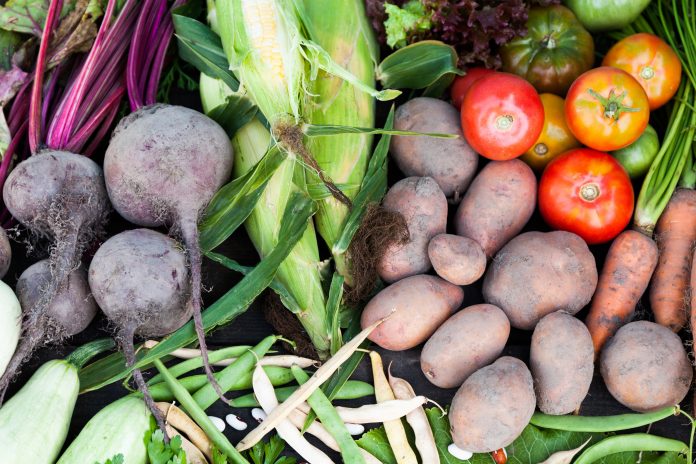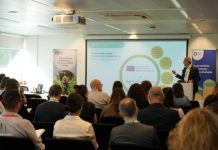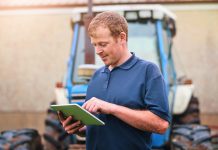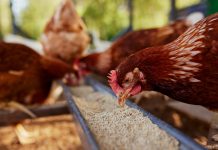Claire Bury, Deputy Director-General for Health and Food Safety at the European Commission, walks us through the Farm to Fork strategy that concerns a transition to more sustainable & healthier food
When the Green Deal was announced as the flagship policy for the Von De Leyen Commission, the Farm to Fork strategy stood out as one of its main components. Why? Because Europeans care more than ever about the food they eat, where it comes from, and its impact on our planet.
Farm to Fork gives Europeans the opportunity to move forward and make the EU’s food system a driving force for sustainability. Despite consensus for the need for change, the path ahead, while worthwhile, was long and challenging.
Then came COVID-19, another potential stumbling block to achieving the goals set out in the strategy. The pandemic has had a major impact on our lives with ramifications for many sectors – including the EU’s farming sector and food industry. This is coupled with the impact of climate change, with annual droughts, floods, forest fires and new pests threatening our food system and our economy. It was clear that we must become more sustainable and resilient, and there is no time to waste.
The figures speak for themselves. Agriculture is responsible for over 10% of the greenhouse gas emissions in the EU. We are being inefficient and unethical, wasting a fifth of the food we produce while 36 million EU citizens cannot afford a quality meal every day. Europe’s healthcare costs keep mounting, as over 50% of the adult population are overweight whilst, globally, nearly 690 million people go hungry every night. Change is needed and needed now.
Farm to Fork: Towards sustainable food systems
This vision is at the root of our Farm to Fork Strategy. It sets out a clear course with ambitious objectives to transform the EU food system by 2030. Alongside the Biodiversity strategy, it contributes to greener food production. Both strategies set concrete and measurable targets, which include reducing the risk and use of pesticides and antimicrobials by 50%, reducing nutrient losses and increasing the share of organic agriculture to 25%, all by the year 2030. The EU is working to do this hand-in-hand with stakeholders, ensuring that all the necessary support to achieve these ambitious targets is given.
As well as these targets, the Farm to Fork Strategy puts forward a list of 27 EU-level actions to spearhead our progress towards sustainable food systems. These range from food labelling, food waste, animal welfare and promoting the global transition. These actions are planned for the current Commission mandate, but work on several areas has already started in earnest. In February, the design of a Code of Conduct for businesses operating in the food area was launched. It will set out ambitious actions that signatories commit to undertake to address the transition to sustainable food systems. These will include the active promotion of healthy and sustainable diets and animal welfare, reducing food waste and unsustainable packaging to become the example of inspiring others to follow the same path.
A transition to healthier food
A recent survey (1) showed that European citizens expect a lot from the EU in the area of food. Most of them believe that producers (farmers, fisheries, etc.) and food manufacturers are key actors in making our food systems sustainable.
In addition to this, Europeans also think that information on food sustainability should be compulsory on food labels and that producers and food companies should themselves raise their products’ sustainability standards. The goal of the Farm to Fork strategy is to make these targets a reality. Work is already underway to provide clear and easily understandable information on the contents of food in the EU; from how it has been produced to how it affects the environment, ensuring that Europe’s consumers are empowered to take the decisions that they want to take.
Farmers, fishers and the primary producers in our food sector will also need to change the way they produce. The strategy ensures that help is available during this transition, allowing them to strengthen their position in the supply chain and to capture a fairer share of the benefits of sustainable production.
To support the transition, policies such as the Common Agricultural Policy (CAP) will continue to help farmers, in particular, to offset the costs of changing practices. In addition, policy approaches will focus on transferring costs from sustainable options to the less sustainable, in the longer term. €10 billion will be made available to spend on European research and innovation, to support and accelerate this transition, to develop biological pesticides, natural resources as well as the use of digital and nature-based solutions for food production.
Through the Farm to Fork Strategy, we have laid down the foundation for creating a better, stronger and fairer food system. We have planted a seed that will grow into a tree of sustainability. As trees bear fruit and provide shelter for generations, so too will our children continue to reap the benefits of this strategy.
1) EB 505 Making our food fit for the future – Citizen’s expectations.











